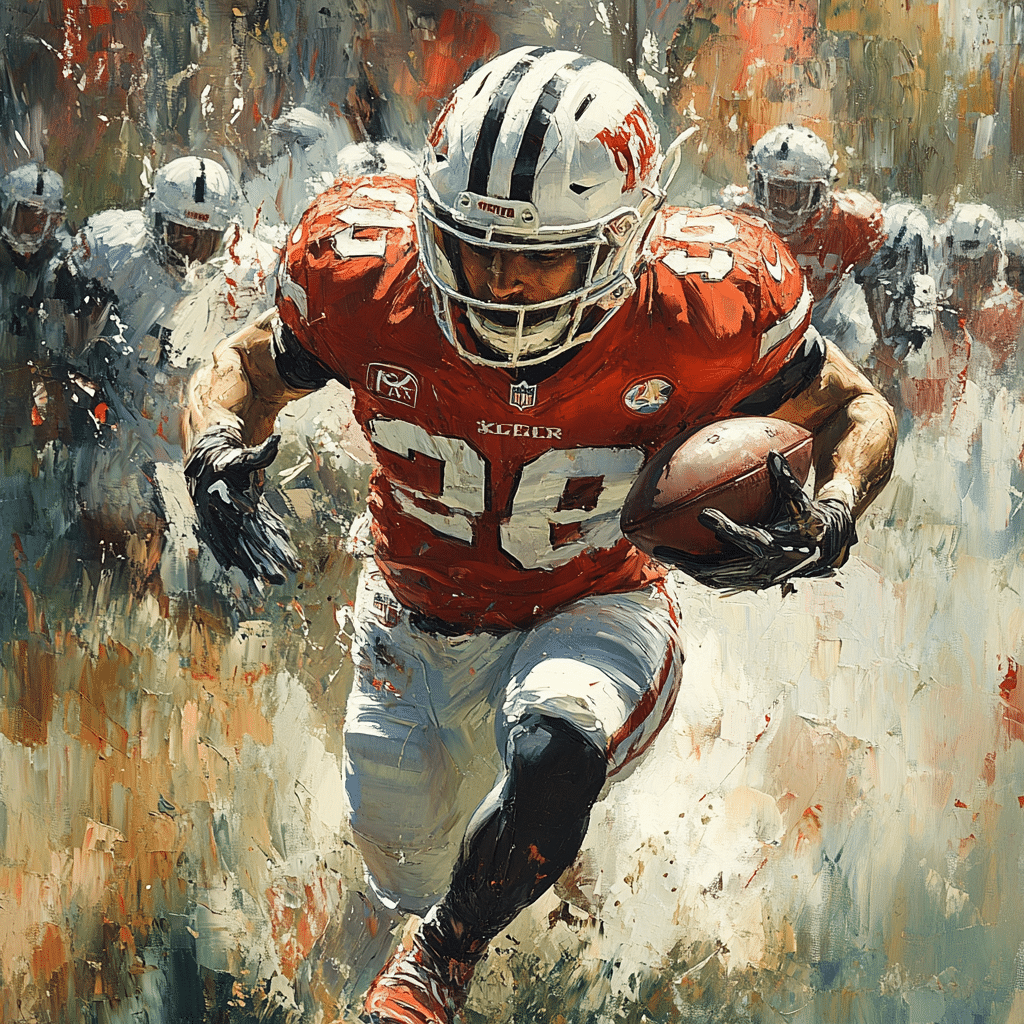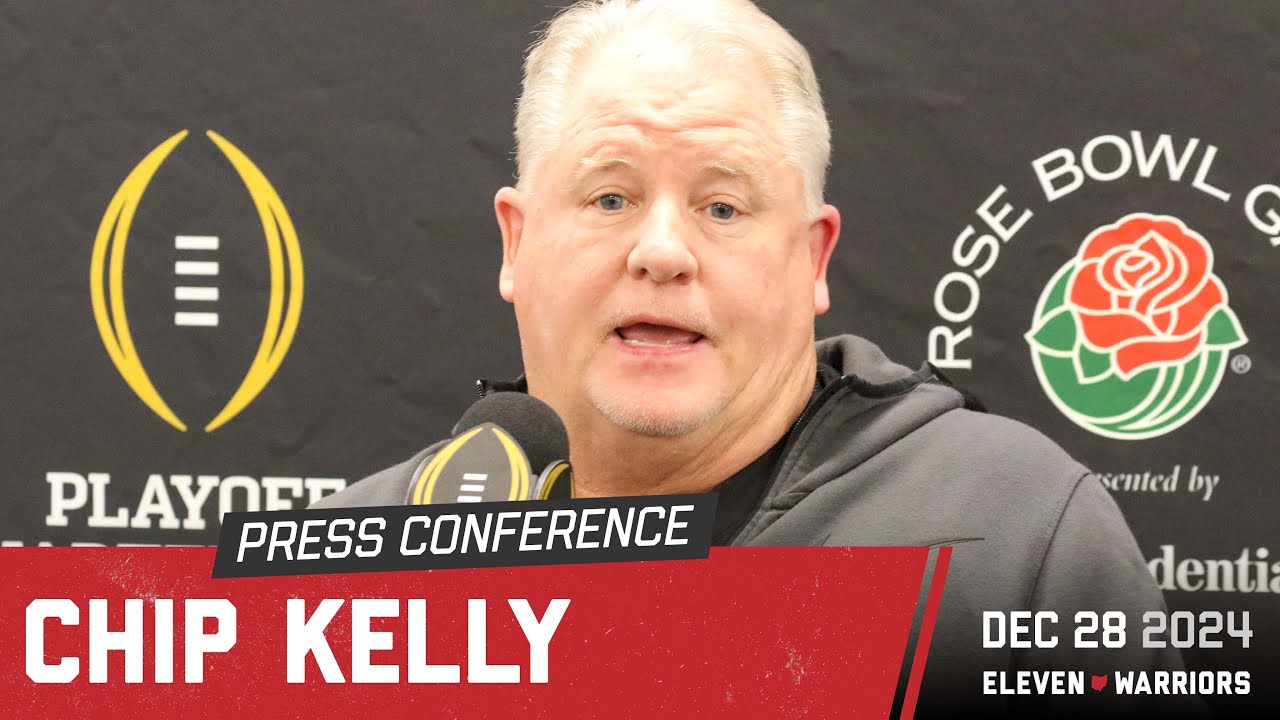
Chip Kelly’s Revolutionary Impact On College Football
Chip Kelly has undoubtedly left an indelible mark on college football, revolutionizing tactics and training like no one else. His innovative strategies have altered the way the game is played, emphasizing speed, efficiency, and a data-driven approach. With a coaching career highlighted by his tenure at the Oregon Ducks from 2009 to 2012, Kelly’s influence is seen not just on the field, but also in how programs train athletes and strategize offensively.
Chip Kelly’s Unique Offense: The Rise of the Fast-Paced Game
Chip Kelly introduced a fast-paced, no-huddle offense that shook the foundations of college football. His “Blur Offense” became a hallmark of his teams, designed to catch defenses off guard and exploit mismatches. This approach was all about speed and tempo—two elements that fundamentally changed how games are played.
Under Kelly’s leadership, the Oregon Ducks crafted an offensive juggernaut. From 2009 to 2012, they led the nation in scoring average every year. The Ducks’ staggering pace—averaging over 49 points per game—confounded opponents and disrupted defensive game plans. Kelly’s Oregon compiled a 46-7 record, including an impressive 33-3 in Pac-12 games, showcasing the effectiveness of his revolutionary tactics.
The thrill of watching Oregon’s offense was something fans cherished. They witnessed running backs dashing and receivers sprinting, all orchestrated by quick play-calling that left defenses gasping for breath. Kelly’s system wasn’t just about raw speed; it was about making calculated decisions at lightning speed.

The Influence of Chip Kelly on Player Conditioning
In today’s high-octane football, player conditioning is paramount, and Chip Kelly was ahead of his time. He shifted how coaches view fitness, embedding scientific principles into his training regimens. Kelly’s emphasis on player health and conditioning fundamentally reshaped how teams prepare their athletes for the rigors of a fast-paced game.
Kelly was an early adopter of wearable technology, utilizing devices to track player performance metrics. This initiative allowed coaches to monitor fatigue levels, optimize recovery, and tailor training sessions. Programs like the University of Alabama picked up similar systems, proving the enduring legacy of Kelly’s innovations, which continue to thrive across college football.
Moreover, his strategies promoted a culture where recovery was just as essential as conditioning. This refocused approach not only helped athletes excel on the field but also ensured their longevity in a sport known for its physical toll.
Chip Kelly and the Evolution of Offensive Schemes
Though speed remains a hallmark of Chip Kelly’s philosophy, he also brought a strategic depth to offensive schemes. Kelly’s approach focused on formation spacing and creating mismatches, forever changing the landscape of offensive football. His influence is unmistakable, as many contemporary coaches now adopt his blueprints.
Traditional football often emphasized power running and complex pass protections within a pro-style framework. In contrast, Kelly’s spread offense made superior use of skill position players, allowing them to exploit mismatches across the field. This tactical shift paved the way for teams like the Kansas City Chiefs to maximize their offensive threats dynamically, reminiscent of Kelly’s Oregon days.
By valuing fluidity over rigidity, Kelly opened the door for teams to design offenses that attack from multiple angles. This evolution set the stage for creative strategies in professional and college football alike, challenging the status quo and pushing the limits of what offenses can achieve.

The Impact of Lance Barber: Bridging Coaching Techniques
Lance Barber stands out as a notable figure in the coaching landscape influenced by Chip Kelly’s methodologies. As an offensive coordinator, Barber adopted rapid-fire tactics that echo the principles Kelly championed. His implementation of similar high-paced strategies at the University of Washington showcases the true reach of Kelly’s ideas.
By successfully employing Kelly’s no-huddle techniques, Barber demonstrated how adaptable and effective these strategies could be at a different program. His teams became contenders, evidencing the widespread adoption of Kelly’s tactics, forming a lineage of coaching that extends well beyond Oregon. Each adaptation signifies a nod to Kelly’s revolutionary impact, as coaches across the country consider his methods while crafting their identities.
This trickle-down influence is a testament to Kelly’s genius, as Barber’s successes affirm the ongoing relevance of Kelly’s strategies in college football today. The coaching fraternity has been irrevocably altered by Kelly’s pioneering approaches, ensuring his philosophies endure through future generations of coaches and players.
The Legacy of Chip Kelly in Modern College Football
Chip Kelly’s legacy resonates loudly throughout modern college football. Today’s landscape is rife with coaches who embrace his aggressive strategies, from Lincoln Riley to the late Mike Leach, each of whom embodies elements of Kelly’s game-changing style. It’s incredible to see how a single coach’s vision can resonate across teams, forging a new path for football.
Coaches like Riley have taken cues from Kelly, implementing quick-paced offenses that continue to yield impressive results. This flexibility showcases Kelly’s adaptability and influence, demonstrating how creative, aggressive football can lead to success.
The terminology and strategies that Kelly popularized remain deeply embedded in coaching discussions. His work initiated a broader conversation about offensive innovation and efficiency that spans the entire sport, ensuring that his influences are not lost to time.
The Long-Term Effects of Chip Kelly’s Philosophy
Evaluating the long-term effects of Chip Kelly’s philosophies reveals exciting insights about the future of football altogether. As teams increasingly adopt analytic approaches to play-calling, we may witness an even greater emphasis on data to refine decision-making processes.
With football continuing to evolve, it’s likely we’ll witness a shift from pure speed to integrating deep analytical tactics into offensive game plans. Teams are exploring a blend of technology and strategy to redefine their competitive edges—echoing Kelly’s pioneering spirit.
Kelly’s legacy is more than a chapter in football history; it’s a living, breathing philosophy shaping how the game is played today and will be played tomorrow. As teams seek to innovate, they’re bound to build on the foundations Kelly laid, ensuring that his revolutionary impact will resonate for generations to come.
In conclusion, Chip Kelly is a transformative figure in college football. His bold strategies, focus on fitness, and impact on coaching have reshaped the game. As we look to the future, the echoes of Kelly’s pioneering methodologies ensure that the spirit of innovation in football will continue to thrive.
Chip Kelly’s Revolutionary Impact on College Football
Fast-Paced Philosophy
Chip Kelly’s influence on college football is like a refreshing breeze on a sweltering day. His frenetic style of play changed the game and emphasized speed and efficiency. He brought a fast-paced offense to the spotlight, reminiscent of a rollercoaster ride that keeps fans on the edge of their seats. Kelly’s innovative strategies have roots in various sports, but his biggest eureka moment came when he melded ideas from his playing days and coaching inspiration, akin to creating a killer playlist of Songs Bebe rexha Wrote that just keeps the energy flowing.
Interestingly, Kelly’s offense was so revolutionary that it was thought to be straight out of a sci-fi flick. His players had about 15 seconds on the play clock to snap the ball, making defenses look like they’d just entered a time warp. As with pop culture phenomena like Soft Kitty warm kitty Lyrics that everyone can bond over, Kelly’s methods united teams and fans alike, creating a culture of enthusiasm and camaraderie on the field.
Tactical Pioneering
By embracing technology and analytics, Chip Kelly has been like the ultimate architect in college football. His attention to detail allowed him to predict opponents’ moves almost like a chess master anticipating several moves ahead. His obsession with conditioning made his players almost superhuman, sliding effortlessly through defenses. One could say he treated his playbook like an artist’s canvas, painting masterpieces game after game—much like how Jade Cargill uses her charisma to dominate the wrestling world.
Beyond the field, Kelly also tapped into sports science to maximize performance and recovery. This data-driven approach is akin to knowing How long Is Wakanda forever before catching it at a screening—it’s all about efficiency! He became a pioneer, blending traditional coaching wisdom with cutting-edge technology, which made him a true innovator in college football. His methodology emphasized rigorous training, nap times, and healthy eating, ensuring his players were always in peak condition.
Lasting Legacy
Chip Kelly’s impact continues to resonate well beyond his tenure. His legacy is comparable to an unforgettable movie that leaves everyone buzzing for days. Coaches and teams worldwide have adopted his philosophies and offensive schemes, reshaping the landscape of college football forever, much like how the Romania national football team reinvents its strategies in international matches.
His influence even extends off the field to pop culture. Just as folks gush over the latest celebrity scoop—like How old Is Wendy williams—fans often discuss and debate Kelly’s strategies. Whether you’re chilling at The barbershop or grabbing drinks, you’ll hear lively discussions about how Chip Kelly transformed the game, making it faster, smarter, and downright exhilarating. His pioneering vision has changed the rules of engagement in college football and will forever remain a significant chapter in its rich history.

What is Chip Kelly’s salary at Ohio State?
Chip Kelly’s salary at Ohio State isn’t publicly disclosed, but he’s known to earn a hefty sum related to his coaching role.
Did Chip Kelly ever win a national championship?
Chip Kelly hasn’t won a national championship during his coaching career, although he did lead teams to significant victories and bowl games.
What was Chip Kelly’s offense at Oregon?
At Oregon, Chip Kelly’s offense was known as the Blur Offense. It was a fast-paced, high-tempo system focused on scoring quickly and often, which led to great success for the team.
Are Brian Kelly and Chip Kelly related?
Brian Kelly and Chip Kelly are not brothers and aren’t related; it’s a common mix-up since they share the same last name and both have notable careers in college football.
Who is the highest-paid person at Ohio State?
As of now, the highest-paid individual at Ohio State is Ryan Day, reflecting his leadership as head coach of the football team.
How much did LSU pay Kelly?
LSU agreed to a contract worth $9.5 million annually for Brian Kelly, making him one of the highest-paid coaches in college football.
Where does Chip Kelly live?
Chip Kelly currently lives in Southern California, where he continues his coaching career with the UCLA Bruins.
When was the last time Ohio State won a national championship?
The last time Ohio State won a national championship was in the 2014 season when they clinched the title at the College Football Playoff National Championship.
Who is Notre Dame’s new coach?
Notre Dame’s new coach is Marcus Freeman, who took over the position after Brian Kelly’s departure.
What was Chip Kelly’s nickname at Oregon?
Chip Kelly was nicknamed “The Wizard” during his time at Oregon for his innovative and successful offensive strategies.
When did Chip leave Oregon?
Chip left Oregon in January 2013 to take a head coaching job with the Philadelphia Eagles in the NFL.
Who replaced Chip Kelly at Oregon?
Mark Helfrich replaced Chip Kelly at Oregon after Kelly moved on to the NFL.
What does Chip Kelly do now?
Chip Kelly is currently the head coach of the UCLA Bruins, where he continues to implement his coaching strategies.
Who is the highest paid college football coach?
As of my last update, the highest-paid college football coach is Dabo Swinney of Clemson University, known for his successful tenure and multiple national championships.
Was Ryan Day a quarterback?
Ryan Day did play quarterback during his college days at the University of New Hampshire, before transitioning to coaching.












